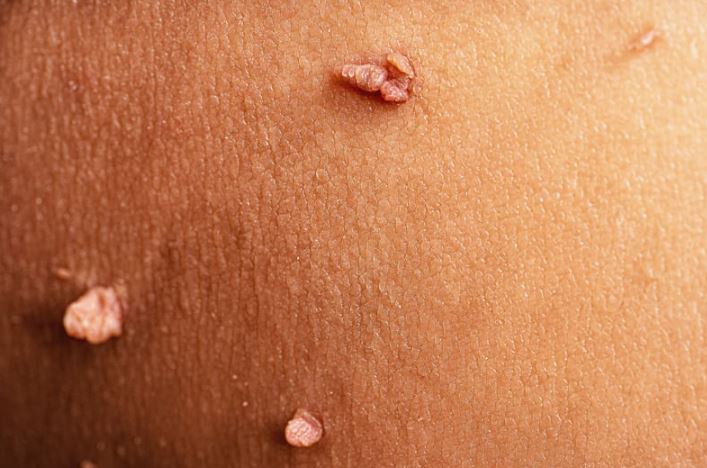Let’s talk about warts – specifically genital warts. We know, it’s not the sexiest topic… but that’s exactly why we need to talk about it. Because the truth is, genital warts are really common, often misunderstood, and absolutely nothing to be ashamed of.
Whether you’ve spotted something new down there, heard the term but aren’t sure what it means, or just want to get clued up – this one’s for you.
So, What Are Genital Warts?
Genital warts are small, skin-coloured growths or lumps that appear on or around the genitals or bum. They can be:
- Flat or raised
- Smooth or cauliflower-like
- Small (barely noticeable) or sometimes more prominent
They’re caused by certain strains of the human papillomavirus (HPV) – a super common virus that spreads through skin-to-skin sexual contact. That includes vaginal, anal, and oral sex, and even just close genital contact (yes, even without penetration).
“But I’ve Had the HPV Vaccine – Can I Still Get Warts?”
Great question. The HPV vaccine offered in schools protects against the most high-risk types of HPV that can cause cancers (like cervical or anal cancer) and some types that cause warts – but not all.
So, even if you’ve been vaccinated, it’s still possible to catch (and pass on) the strains that cause genital warts. That’s why it’s still important to check in with your sexual health and know the signs.
Are Genital Warts Dangerous?
No – genital warts aren’t dangerous or cancerous. But that doesn’t mean they should be ignored.
They can cause:
- Itching, discomfort or irritation
- Emotional distress or embarrassment
- Bleeding if scratched or irritated
- Blockages or issues depending on their location
And because HPV spreads easily through skin contact, warts can be passed to others without you even realising – even when using condoms, depending on where the warts are.
What’s the Treatment?
The good news: genital warts are treatable.
Treatment depends on the size, number, and location of the warts – and what feels right for you. Options include:
- Creams or liquids applied at home or in clinic
- Freezing (cryotherapy)
- Minor surgical removal in more persistent cases
Warts can come back after treatment, but your immune system usually clears the virus over time. There’s no magic cure for HPV itself – but your body does a pretty good job at fighting it off naturally.
Can I Still Have Sex If I Have Genital Warts?
Technically, yes – but it’s a good idea to avoid sexual contact while you’re being treated, to reduce the risk of passing the virus on. You can chat to one of our clinicians about when it’s safe to resume sex and how to talk to partners.
Warts aren’t a reflection of your hygiene, your sex life, or your worth. They’re just something that happens – and you’re not alone.
Genital Warts Can Appear On…
Let’s be real – warts don’t just appear on penises or vulvas. They can pop up:
- Around or inside the anus
- On the scrotum or inner thighs
- Inside the vagina or on the cervix
- Around the mouth or throat (after oral sex)
That’s why a proper sexual health check (with someone who knows what they’re looking for) is so important.
We’re Here – No Judgment, Just Care
At Essex Sexual Health Service, we offer free, confidential STI testing and treatment. If you think you might have genital warts – or you’re just not sure – book in with us. We’ve seen it all, and we’re here to help, not to judge.
Learn more: www.essexsexualhealthservice.org.uk/warts
Book an appointment or ask a question through our contact page.
You deserve to feel comfortable, cared for, and confident in your body – no matter what’s going on down there. Genital warts are common, manageable, and nothing to be ashamed of. The sooner you get checked, the sooner we can help.




